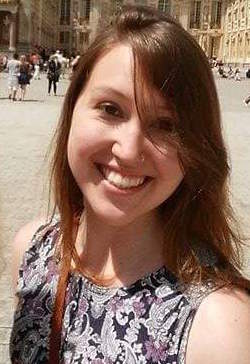University officials consider changing scholarship GPA requirement
October 10, 2014
College is stressful. Anxiety from work and classes plagues students, and it can be made even worse when students are faced with the potential of losing their scholarship if their GPA drops too low. With this in mind, Case Western Reserve University is currently reviewing its scholarship retention requirements, and there is chance that the minimum GPA requirement will be dropped.
Current scholarship retention criteria requires students to maintain good disciplinary and academic standing with the university. To be in good academic standing, students must have a minimum 2.0 GPA and be enrolled in at least 12 credit hours. These criteria apply to University, Bolton, and Michelson-Morley scholarships only. Other scholarships may have different minimum GPA requirements.
The last review of this criteria was in 2011, lowering the GPA requirement from 3.0 to 2.0 and allowing students to regain their scholarship after one semester if they lost it.
During this year’s review, the Academic Standing subcommittee of the Faculty Senate Committee on Undergraduate Education (FSCUE) is considering both allowing students to take a year off and still retain their scholarships, and removing the GPA requirement.
If the policy does move forward, it first has to be more fully developed by the Academic Standing subcommittee, as well as the Admissions and Aid subcommittees of FSCUE. After being approved by FSCUE, it will be presented to the Faculty Senate, who will give the final decision on the potential policy change.
When looking at retention requirements, the reviewers ask themselves if the current requirements reflect what is best for students. The Academic Standing subcommittee often reviews student appeals for exception to the retention rules, leading them to question whether or not the rules as they stand are still effective for students.
Dean Jeffrey Wolcowitz said the committee is looking to see if current GPA requirements are “creating an appropriate incentive or inappropriate stress.”
“We’re always asking the question, what works best at Case Western Reserve University,” he said.
To get a sense of the student body’s opinion, the Academic Affairs committee of USG is also being given a chance to critique the proposal. Since it is still in development, the committee does not have an official stance at this time. Some of the questions that the committee are still waiting to be answered are the percentage of students who will be affected by the policy change, and what would replace the GPA requirement.
The committee is also worried because it can be difficult to ask for the opinions of the students who will be the most affected. Xiaoyu Li, the USG vice president of Academic Affairs, said that it’s “sticky” to single people out who are struggling both academically and financially to get their thoughts on the subject.
Li said that students are welcome to sit in on the Academic Affairs meetings in the USG Office to voice their opinions. From there, USG representatives will pass on the students’ feelings and concerns on the policy.


